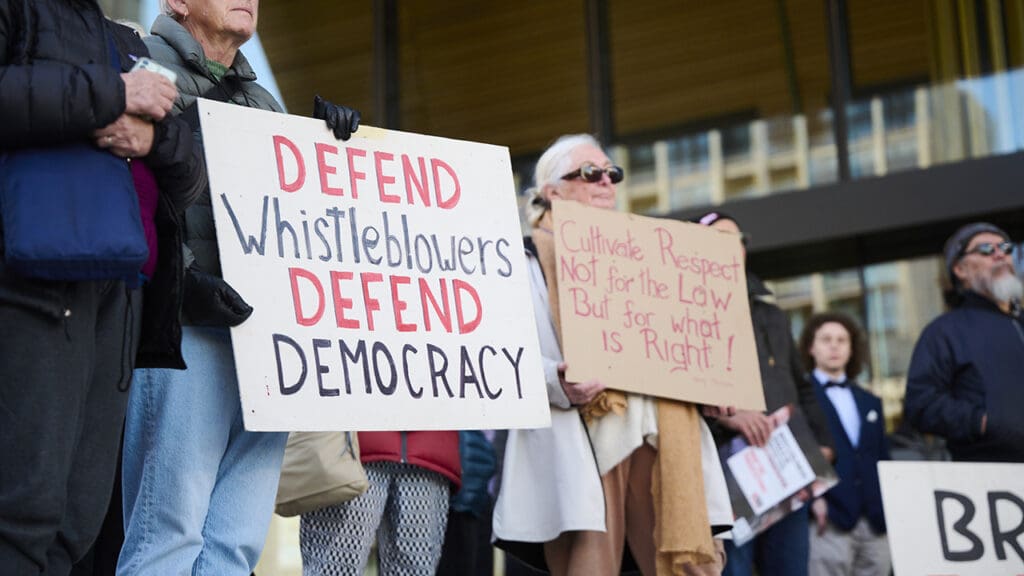We’re fighting Tasmania’s parole board gag on free speech
Everyone has the right to free speech and freedom of political communication, including people who have been incarcerated.
We have filed legal proceedings on behalf of Tasmanian grandmother, Susan Neill-Fraser. Her case challenges a restrictive parole condition placed on her by the Parole Board of Tasmania which limits her ability to speak to the media.
Susan has been on parole since 2022 after serving 13 years in prison. In December 2024, the Parole Board of Tasmania placed a condition on Susan’s parole which prohibited her from communicating “directly or indirectly with any media outlet to claim her alleged innocence and/or wrongful conviction”.
The case, filed in the Supreme Court of Tasmania, argues that preventing Susan from speaking to the media is improper, unlawful and in breach of the constitutionally implied freedom of political communication.
The parole system should support people’s re-entry into the community after being in prison. Repressive parole conditions which restrict people’s fundamental human rights set people up to fail through hurdles that can push people back into prison.
The right to political communication is fundamental to our democracy and safeguarded by Australia’s constitution, while our right to free speech is protected by international human rights law.

ADF whistleblower breaks 15-year silence on sexual abuse cover-up
Former RAAF airwoman Julia Delaforce represented by the Human Rights Law Centre, has broken her fifteen year silence on alleged wrongdoing and sexual abuse which was covered up by the Australian Defence Force.
Read more
What issue unites Coalition, Labor, Green, teal and One Nation voters? Whistleblower protections
The Albanese Government’s persecution of whistleblowers Richard Boyle and David McBride is unjust, and the public doesn’t support it. It’s time for much-needed reform.
Read more
Universities must stop restricting protests and surveilling staff and students
The Human Rights Law Centre is urging the University of Melbourne to abandon new policy changes that severely restrict protest rights and allow widespread surveillance of students and staff through the universities’ wifi network.
Read more



